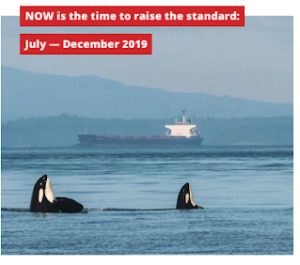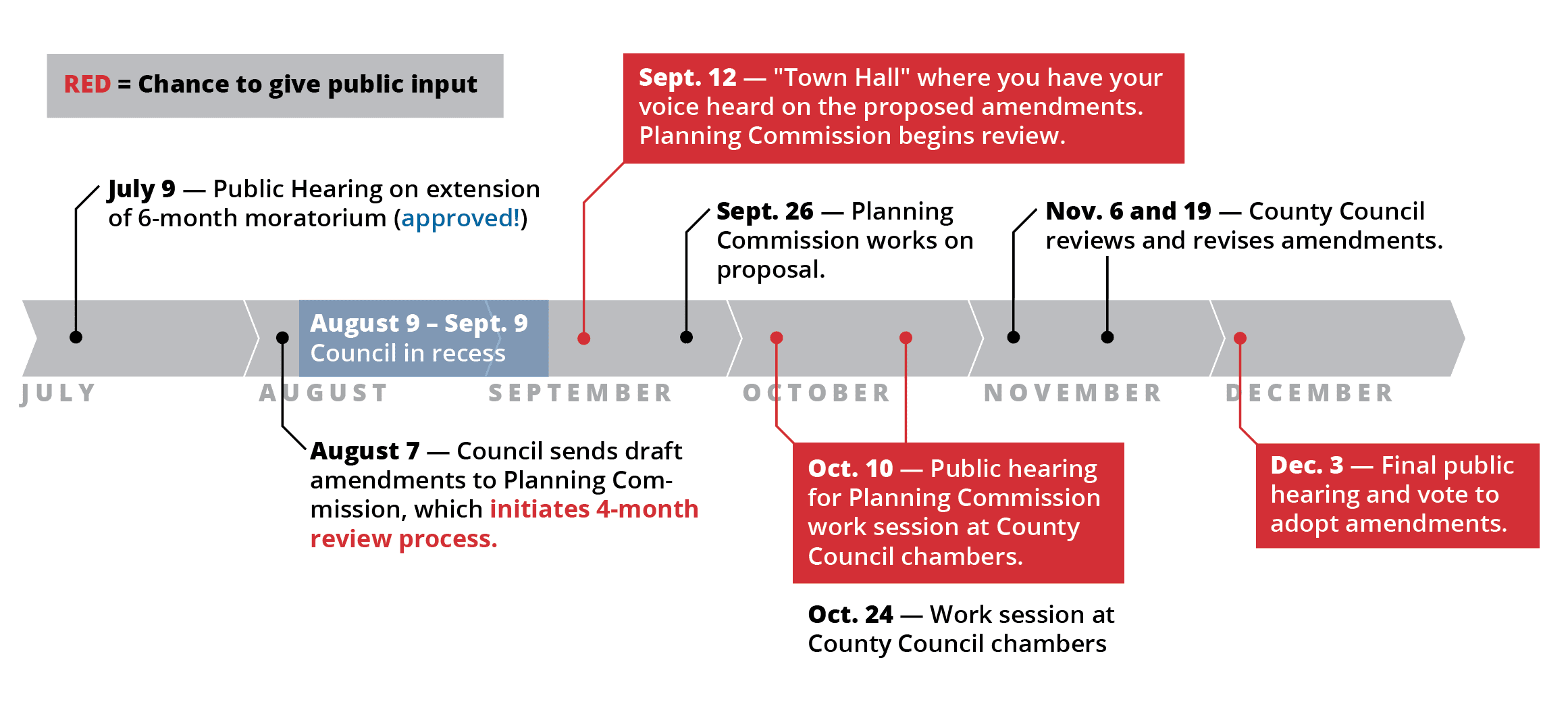On August 7th, 2019, the Whatcom County Council initiated a public review process for a set of draft code amendments that would hold industries accountable for pollution and protect the air, water, and communities around Cherry Point’s fossil fuel industries.
The draft amendments include a provision to prevent new new coal, oil or gas transshipment facilities. Your input over the next three months will be crucial to safeguard communities from industrial impacts. Oil companies have largely gotten a free pass in this county for over 60 years, getting major permits approved without adequate environmental review or safety requirements.
 Thankfully, after three years of work on these draft code amendments, the County has set in motion a robust public process for taking the community’s feedback on the rules. Come to a County work session — it’s open to the public, but this particular meeting doesn’t have time allotted for public testimony. This is your opportunity to learn about the efforts to protect our community and ecosystems from fossil fuel impacts — so you can give effective, helpful, and specific input to the County in the coming weeks. At this time, public comments are only useful if they provide specific, relevant information or suggestions to resolve problems!
Thankfully, after three years of work on these draft code amendments, the County has set in motion a robust public process for taking the community’s feedback on the rules. Come to a County work session — it’s open to the public, but this particular meeting doesn’t have time allotted for public testimony. This is your opportunity to learn about the efforts to protect our community and ecosystems from fossil fuel impacts — so you can give effective, helpful, and specific input to the County in the coming weeks. At this time, public comments are only useful if they provide specific, relevant information or suggestions to resolve problems!
The primary focus of concern and deliberation in the policies is a condition to require mitigation for greenhouse gas emission impacts for refinery projects that would otherwise not be regulated by state or federal agencies. This would apply to projects that induced significant, measurable emissions through their cumulative impacts, such as from trains and ships.
 What do the proposed land use code amendments include?
What do the proposed land use code amendments include?
The current draft Cherry Point amendments…
- Prohibit new coal, oil or gas industries at Cherry Point and puts conditions on the existing ones;
- Prohibit new shipping piers, docks or wharfs at Cherry Point;
- Require new permits and conditions for Changes of Use, so that existing terminals don’t change to become shipment hubs for crude oil, tar sands, coal, or fracked gas;
- Require expansion of existing refineries to meet conditions including mitigation of climate pollution.
Learn more about the protective standards you can help enact.
See the draft code amendments here.
What happens between now and December 2019?
Why do we need more protective standards written into law?
- In 2013, Whatcom County determined two oil train terminals were non-significant and permitted them without review of their impacts — despite the major risks posed by crude oil trains that have exploded twelve times in the US and Canada since.
- Current laws are vulnerable to loopholes and gray areas that oil companies could exploit to sue Whatcom County for rejecting permits with unmitigable negative impacts to our communities.
- One oil spill could cause irrevocable damage to already endangered fisheries that are the foundation of the livelihoods and economy of families who have relied on fishing since time immemorial.
- Cherry Point is a targeted route for increased tar sands, oil, and gas shipment from Canada.
Background
In 2016, Lummi Nation and our community blocked the would-be largest coal export terminal in North America, after the U.S Army Corps of Engineers recognized the terminal would violate Lummi Nation’s treaty fishing rights. Soon after, Whatcom County Council imposed a temporary moratorium preventing new fossil fuel transshipment infrastructure at Cherry Point, until the county could create legal protections for people and the environment from impacts of fossil fuel projects. After a years-long process, the council has finally presented a set of draft amendments with those legal protections, and aims to pass a final version of them this fall.

 What do the proposed land use code amendments include?
What do the proposed land use code amendments include?